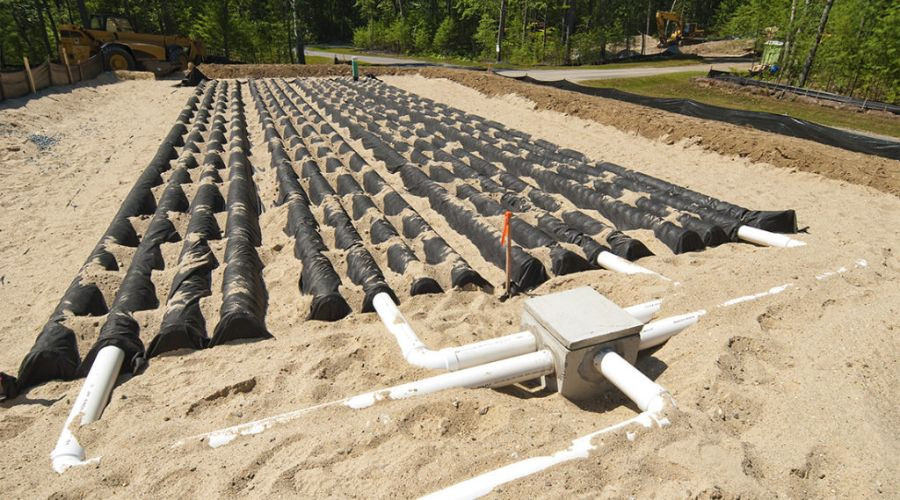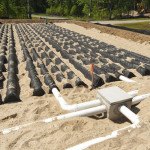Learning the Basics of a Septic System
Fall is coming and that means people will be returning to school. For those not in school, that is no excuse for not continuing to learn. Especially for homeowners, there is always something to learn about home improvement or management that can make life a little easier.
Learning about the septic system can be a game changer for people living off the local municipal sewer grid. Here is a guide from local experts to help homeowners familiarize themselves with their septic systems.
What Is a Septic System?
 Plumbing is one of the wonders of the modern world. Access to fresh water has always been a key feature of any society’s public health infrastructure. Just as important is a sewer system that removes water once used. In cities, the answer has always been relatively simple: a network of piping or tunnels drains to a treatment facility or out to a large body of water. However, the network of sewers that removes waste is expensive to install and maintain for people who live far away from city centers.
Plumbing is one of the wonders of the modern world. Access to fresh water has always been a key feature of any society’s public health infrastructure. Just as important is a sewer system that removes water once used. In cities, the answer has always been relatively simple: a network of piping or tunnels drains to a treatment facility or out to a large body of water. However, the network of sewers that removes waste is expensive to install and maintain for people who live far away from city centers.
Septic systems are the answer for people not near a municipal sewer system. A septic system is a safe alternative to wastewater treatment that utilizes simple, natural processes to treat sewage and return waste to the environment. A septic system comprises a tank that hooks up to a home’s drain and sewer system. This tank allows solids to settle on the bottom while liquid effluent flows through. Bacteria will then help break down the solids, so they mostly flow away with the wastewater.
After water is held in the tank, the wastewater flows out to special perforated pipes into a leach field or drain field. Here, the pipes allow wastewater to enter the surrounding soil. At this point, the sewage is less likely to be harmful. Since the water is being released below the ground, the chances of someone contacting it are small.
Signs of a Septic System Failure
Since septic systems do such an important job of sewage treatment for rural families, they must be operating perfectly at all times. However, its biggest impediment to reliability is simply that so much time goes by between problems that owners forget to have it checked. This can result in septic system failures, which should be treated immediately to prevent further system damage and potential exposure to sewage. Look out for these signs of a possible septic system failure:
- Exposed tank or lateral lines
- Sewage backing up into the home
- Clogged lateral lines
- Uneven lawn growth in the leach field
- Soggy spots or lush growth in the leach field
Maintaining a Septic System
 To prevent problems, owners should partner with a septic system maintenance company or a qualified plumber who can inspect it yearly so owners can avoid problems with silting. Additionally, owners should remember to have the tank pumped to remove undissolved solids every three to five years. To prevent sewer line problems, homeowners should remember to add septic system cultures to their tanks periodically and use septic-safe toilet paper, soaps, and detergents.
To prevent problems, owners should partner with a septic system maintenance company or a qualified plumber who can inspect it yearly so owners can avoid problems with silting. Additionally, owners should remember to have the tank pumped to remove undissolved solids every three to five years. To prevent sewer line problems, homeowners should remember to add septic system cultures to their tanks periodically and use septic-safe toilet paper, soaps, and detergents.
About Capital City Septic Services
Capital City Septic Services specializes in off-grid homes with septic systems. Their teams can design, install, and maintain any septic system or grease trap. Call today for septic system service in Tallahassee, FL.



